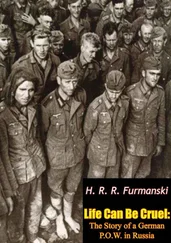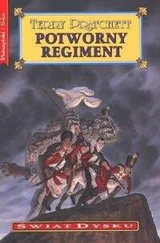Wolf Baudissin - Life in a German Crack Regiment
Здесь есть возможность читать онлайн «Wolf Baudissin - Life in a German Crack Regiment» — ознакомительный отрывок электронной книги совершенно бесплатно, а после прочтения отрывка купить полную версию. В некоторых случаях можно слушать аудио, скачать через торрент в формате fb2 и присутствует краткое содержание. Жанр: foreign_antique, foreign_prose, на английском языке. Описание произведения, (предисловие) а так же отзывы посетителей доступны на портале библиотеки ЛибКат.
- Название:Life in a German Crack Regiment
- Автор:
- Жанр:
- Год:неизвестен
- ISBN:нет данных
- Рейтинг книги:3 / 5. Голосов: 1
-
Избранное:Добавить в избранное
- Отзывы:
-
Ваша оценка:
- 60
- 1
- 2
- 3
- 4
- 5
Life in a German Crack Regiment: краткое содержание, описание и аннотация
Предлагаем к чтению аннотацию, описание, краткое содержание или предисловие (зависит от того, что написал сам автор книги «Life in a German Crack Regiment»). Если вы не нашли необходимую информацию о книге — напишите в комментариях, мы постараемся отыскать её.
Life in a German Crack Regiment — читать онлайн ознакомительный отрывок
Ниже представлен текст книги, разбитый по страницам. Система сохранения места последней прочитанной страницы, позволяет с удобством читать онлайн бесплатно книгу «Life in a German Crack Regiment», без необходимости каждый раз заново искать на чём Вы остановились. Поставьте закладку, и сможете в любой момент перейти на страницу, на которой закончили чтение.
Интервал:
Закладка:
At last he was able to release his hand, and stand at ease once more; his arm was almost numb and the muscles of his legs trembled and smarted, but by no sign did he betray this.
"Lieutenant Winkler is placed in the second battalion, fifth company."
All glances were directed towards the captain of the fifth company, Baron von Warnow; he was considered the most important officer in the regiment; he was of very ancient descent, which he could trace back to the Emperor Barbarossa, in whose campaigns a Warnow had distinguished himself. He was married to a Countess Mäilny, had a very large fortune, and his house was considered the most aristocratic in Berlin. Whenever it was a question of representing the regiment, or of sending a deputation anywhere, it was Baron von Warnow who was always nominated. On account of his birth and his connection with the most important families in the country he was pre-eminently fitted for such appointments. And he was just as distinguished in his military career as in his private life. He permitted no swearing or bad behaviour among his officers. He attempted, as his comrades laughingly said, to make a gentleman of every musketeer, and in his first lieutenant, Baron von Felsen, he had an excellent assistant. For the last fortnight he had only had one officer attached to his company, for a short time ago his lieutenant had been thrown while riding and had broken his arm. It would be at least a month before he could be on active service again, but it had never occurred to him that another officer would be assigned to him.
And now he was to have Lieutenant Winkler in his company – he, Baron von Warnow!
He could scarcely conceal his annoyance; his thick brows contracted, and he was about to mutter something in a rage when he met Winkler's glance. The latter, when he heard his captain's name, looked round to see which among the many to whom he had been introduced was Baron von Warnow. When he saw the latter's disappointed and almost furious countenance, he knew at once that that was the Baron! He fixed his eyes upon him almost as if he was saying: "What harm have I done you?" Perhaps his face became a shade paler, but his voice had its quiet, steady tone when he stepped up to his superior officer and saluted him.
Baron von Warnow returned the salute by a bare finger, then he said: "It would have been more in order if you had, first of all, saluted your major."
Winkler flushed red, then he repaired the omission and stepped up to Baron von Masemann, his superior lieutenant, in order to get to know him a little better as they were to be in the same company. He took his friendliness as a matter of course, but he merely received a curt, "I am much obliged to you."
The colonel conversed with the staff officers; the other officers chattered in various groups. Winkler stood quite alone, nobody troubled about him, and he breathed more freely when the colonel at last dismissed the officers.
As Winkler was turning to go, his captain, who was talking to the first lieutenant, called to him: "One moment, if you please, Lieutenant Winkler," and after a little pause continued: "I do not know, Lieutenant Winkler, whether you are already aware of the fact, otherwise I had better tell you at once, that a thoroughly good and healthy tone is maintained in my company; I must therefore beg you to avoid all cursing and swearing, my men are accustomed to be treated as decent persons. It is a very great honour for you to be in my company, and it is to be hoped that you will strive to maintain it worthily." And turning to his first lieutenant he continued: "My dear baron, if at first Lieutenant Winkler does not find it easy to maintain the right tone, you will be kind enough to help him."
The first lieutenant acquiesced with a salute, then the captain turned again to Winkler: "We shall see each other again to-morrow on duty; kindly give the sergeant-major your address, so that we may know where to send the orders."
"Certainly, sir."
"Then there is nothing more for me to say. I am obliged to you for coming, gentlemen."
The two lieutenants turned to go, and silently they walked together over the great courtyard. It was not till they had passed the door of the mess-room that the baron said: "We do not dine till six o'clock; will you join us in the mess-room for lunch?"
But Winkler declined. "I must go and report myself to the superior authorities, and, besides, I have still a good deal to do."
The other did not press him further, and so with a few words they took leave of one another.
Winkler called a fly; it was nearly three o'clock when he at last reached the hotel in which he had taken rooms for the time being.
"Have any letters come for me?" he inquired. He had had no news from home for three days; he had telegraphed to his parents that he would be in Berlin to-day, and he hoped to receive a warm letter of greeting from them.
The porter looked through the letters.
"Nothing has come for you, sir."
Winkler could scarcely conceal his disappointment. Just to-day when he felt so terribly solitary and alone a kindly letter from his parents would have been so very welcome. He had been quite prepared for not being warmly welcomed by his new regiment, but he had not had the faintest idea that the officers would have received him with such coldness and such aversion.
"The key is in the room upstairs, sir."
With a troubled air he went upstairs. To his astonishment the door of the sitting-room was not locked, and when he opened it and walked into the rooms he was greeted with a loud, hearty laugh.
"Ha! ha! George, my boy, here's a surprise for you, isn't it? I told the porter I'd wring his neck if he told you of my arrival; for two hours I've been sitting here and waiting for you. Now, thank heaven, you're here at last. And how fine you look, my boy, your mother would burst with pride if she could see you now. Of course, the first thing you'll do is to go and be photographed."
And with justifiable paternal pride and the keenest delight the manufacturer to His Majesty embraced his son.
When George had at last freed himself, he said:
"Father, this is indeed a surprise. However did you get here?"
The old man, about sixty years of age, of medium height and strongly built, with a broad ruddy face, large grey eyes and thick bushy brows, whose appearance all betokened iron will and energy and great self-confidence, looked at his son with a satisfied glance. "Do you know your father so little, that you thought he would let you be here alone to-day? I wanted to help you to find rooms, but above all I wanted to hear how things were going with you, and to hear everything that people had said to you to-day. Now begin and tell me everything."
George had taken off his helmet and scarf, and changed his military coat for a comfortable loose jacket; then he took one of the cigars which his father offered him, and sank down into a chair.
"Now, my boy, do begin and tell me everything; surely you can talk while you're changing your things. I know you always say, 'One thing at a time,' but I say one can do several things at the same time. Do you think I should have succeeded so well if I had done otherwise? Why, to-day, I had my lunch standing, with my left hand I ate, and with my right I wrote several notes, and at the same time I gave my clerks all kinds of orders and commissions. So now, fire away."
With an expectant expression the manufacturer looked at his son who still remained silent, but at last he said: "Father, it's all happened as I told you it would when you said you had asked for me to be exchanged. It all happened precisely as I said it would, only it was ever so much worse."
The old man got up and looked at his son with wide-open eyes. "Do you mean to say – "
"I mean to say," continued his son, "that they received me in the regiment in such a manner as might have made me not only blush with shame but burn with rage and anger, as in fact I did inwardly. I was, however, able to control the expression of my feelings, as I always can. They treated me to a long discourse, they exhorted me to do my duty, and they kept on rubbing it into me that it was a tremendous honour to belong to their regiment."
Читать дальшеИнтервал:
Закладка:
Похожие книги на «Life in a German Crack Regiment»
Представляем Вашему вниманию похожие книги на «Life in a German Crack Regiment» списком для выбора. Мы отобрали схожую по названию и смыслу литературу в надежде предоставить читателям больше вариантов отыскать новые, интересные, ещё непрочитанные произведения.
Обсуждение, отзывы о книге «Life in a German Crack Regiment» и просто собственные мнения читателей. Оставьте ваши комментарии, напишите, что Вы думаете о произведении, его смысле или главных героях. Укажите что конкретно понравилось, а что нет, и почему Вы так считаете.












